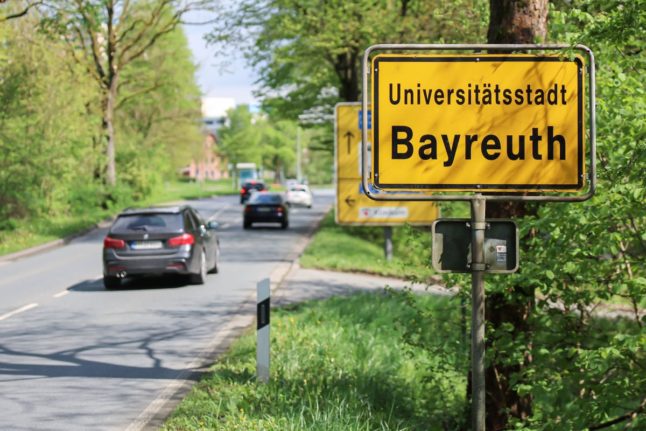Lawyers will refile a motion by Wednesday to halt his extradition and reopen his case, his attorney John Broadley told AFP hours after a US immigration judge lifted a stay of deportation against the 89-year-old Ukrainian-born Demjanjuk.
“The immigration court judge said that, because of a technicality, our motion to reopen the case should have been filed in the Board of Immigration Appeals, not in the immigration court. So we are refiling,” Broadley told AFP.
“We have until the 8th to file,” he said, adding that the motion would probably be lodged with the board of appeals on Tuesday.
Demjanjuk, who changed his name from Ivan to John after emigrating to the United States in 1952 and who some believe is the brutal Nazi death camp guard nicknamed “Ivan the Terrible,” is wanted in Germany on charges of assisting in the murders of thousands of Jews at Sobibor death camp in Nazi-occupied Poland.
He was stripped of his US citizenship in 2008 and last month American officials began the process of extraditing the now-stateless Demjanjuk to Germany to stand trial for crimes allegedly committed more than 60 years ago.
Last week, his lawyer won him a stay of deportation while immigration officials debated whether or not to reopen Demjanjuk’s “removal” case.
Broadley had argued that the octogenarian was in poor health, and that jailing and trying him in Germany would cause him pain amounting to torture.
But the brief stay was overturned on Monday by immigration judge Wayne Iskra, who reasoned that jurisdiction over the motion to bar Demjanjuk’s deportation did not lie with the immigration court but with the board of appeals.
German prosecutors issued a warrant last month for Demjanjuk’s arrest, accusing him of complicity in the murder of at least 29,000 Jews at Sobibor death camp, where he served between March and September 1943.
Around a quarter of a million Jews died at Sobibor from when the camp was opened in the spring of 1942 until the Nazis shut it down after a mass uprising in October 1943, in which hundreds of prisoners managed to escape.
US investigators have brought together witnesses who described how Demjanjuk was seen at Sobibor, kicking Jews or hitting them with his rifle butt to herd them out of railway wagons and into the gas chambers more quickly.
The Office for Special Investigations (OSI) in the United States has described Sobibor “as close an approximation of Hell as has ever been created on this planet.”
Former wartime inmates of Nazi camps in occupied Poland in 1977 identified Demjanjuk as brutal Ukrainian prison guard “Ivan the Terrible” during a US Justice Department investigation.
Demjanjuk was sentenced to death by a court in Israel, but the penalty was overturned five years later by Israel’s Supreme Court after statements from other former guards identified another man as the sadistic “Ivan.”



 Please whitelist us to continue reading.
Please whitelist us to continue reading.